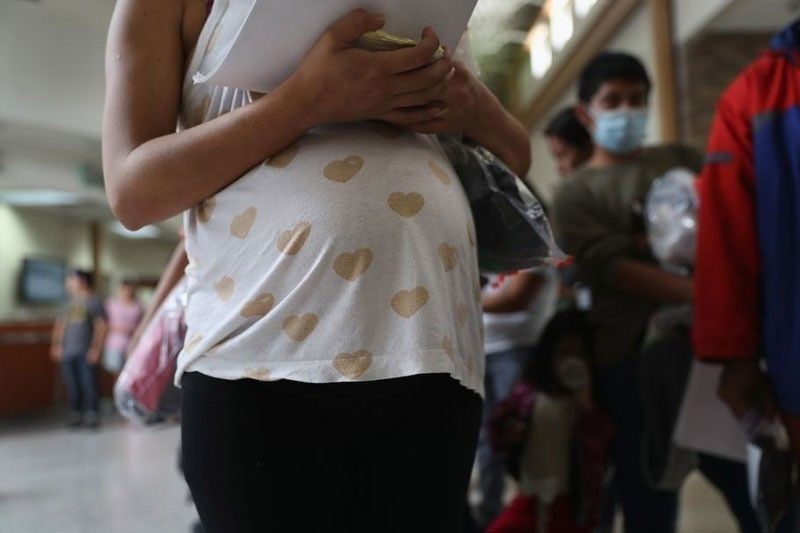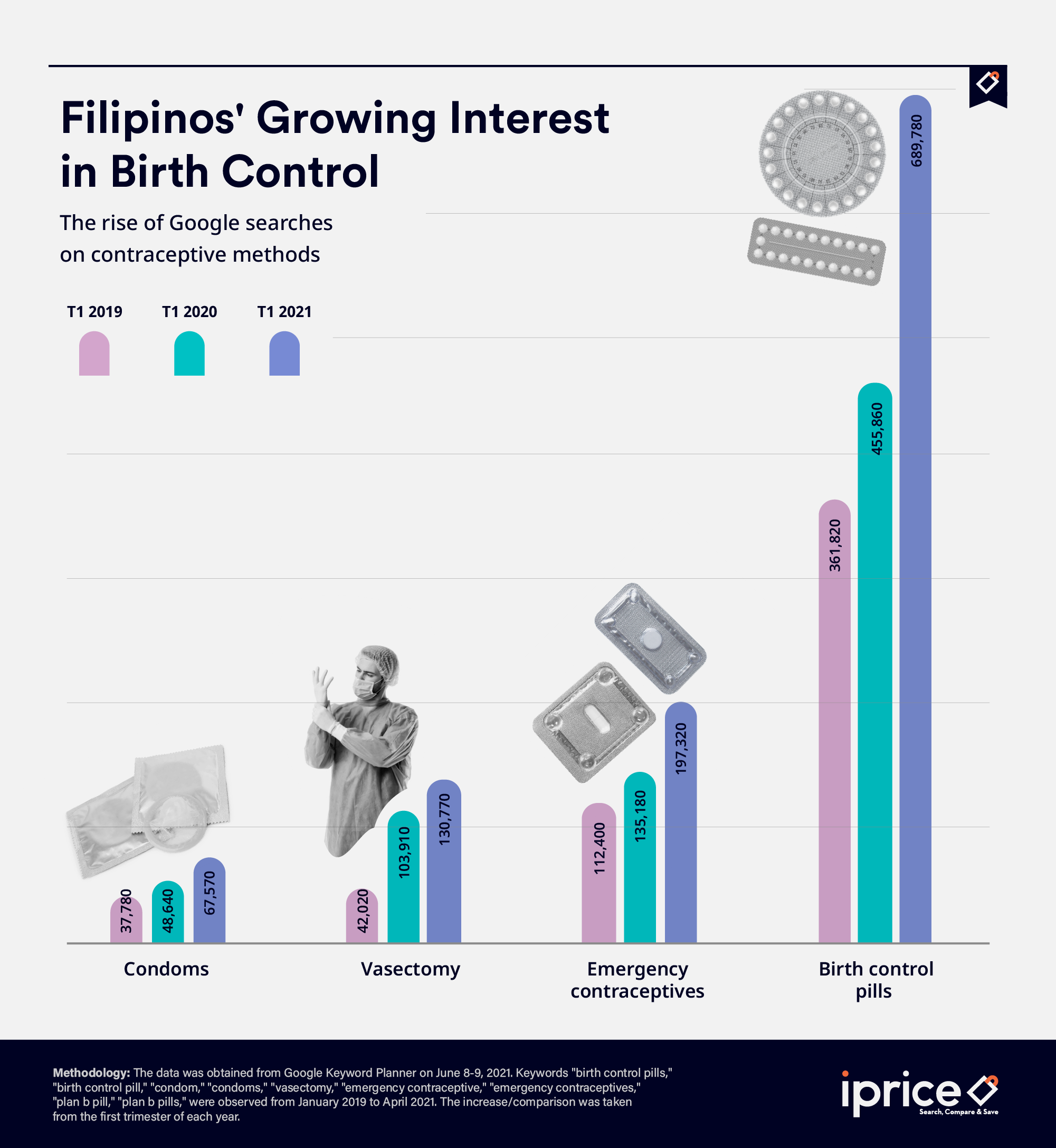As pandemic lingers, pregnant women struggle with strict COVID-19 protocols

MANILA, Philippines — First-time mother Danica Sy, 27, had one fear on learning seven months ago that she was pregnant: contracting COVID-19.
Danica recalled that this was the exact situation of her twin sister Dana who gave birth in July last year. Dana was separated from her son after testing positive for COVID while she was in labor.
"Ang fear ko lang ngayong pandemic is ‘yung baka manganak ako, tapos mag-positive ako sa COVID," Danica said in an interview with Philstar.com.
(My fear especially this pandemic is to give birth and then tests positive for COVID-19)
“Ayoko maranasan na ‘pag nanganak ako, ‘di ko makakasama ‘yung baby,” she added.
(I don’t want to experience giving birth and not being with my baby)
Her baby's birth is a bittersweet moment for Dana. While she was relieved her son was delivered safely, she never got to hold him and see him closely immediately after giving birth.
She tested positive for COVID-19 twice and had to undergo self-isolation for 28 days.
According to Danica, her twin sister rendered the first 14 days of her quarantine at the Chinese General Hospital and Medical Center where Dana gave birth. The rest of her quarantine was at a budget hotel offered by the Caloocan City government.
“Ang problem kasi ngayon ‘pag nag-positive ka sa COVID, although may mga mommies na kinukuha nila ‘yung baby nila agad. Pero kasi wala pa raw studies na safe talaga sa baby ang positive na patient,” Danica said.
(The problem now is if you test positive for COVID, although there are mothers who take their child immediately after giving birth... There is still no study proving it is safe for the baby to get exposed with a COVID-positive patient)
High-risk pregnancy
Aside from the fear of contracting COVID-19, Danica’s pregnancy has been extra hard for her as she was diagnosed with a kidney disorder called nephrotic syndrome.

While she does not need dialysis, her condition is considered a comorbidity that classifies her as a high-risk pregnancy.
Because of the pandemic, her regular checkups and lab tests must now be on an appointment basis.
Since she has a weak immune system, Danica's doctors asked her to minimize doctor appointments and instead opt for teleconsultation to avoid getting exposed to COVID-19.
Danica was supposed to have her checkups at the National Kidney and Transplant Institute but her doctor against it since the hospital is full of COVID patients.
She expects to deliver her baby in August at the Philippine Children's Medical Center, which does not accept COVID-19 patients.
“Nitong second wave ng COVID na nagpa-lockdown din, doon siya [doctor] nag-decide na ‘wag muna ako magpunta sa hospital…Natatakot siya na baka mahawa ako. Kaya sabi niya kung wala naman akong nararamdaman mas better na na online consultation na lang,” the seven-month pregnant said.
(This second wave of COVID-19 coupled with lockdown. My doctor decided that I should no longer visit the hospital. She fears that I will catch COVID-19 so she said that if I don’t feel anything, it’s better to just do online consultation)
Hospital 'red zone'
Like Danica, 32-year-old Clarizza Garcia-Josue, another first-time mom, also struggled during the pandemic.
She suffered hyperemesis gravidarum, a complication during pregnancy that causes severe and persistent nausea and vomiting.
Clarizza gave birth four months ago but the road to delivery was not easy for her. She also adjusted her doctor appointments during the pandemic and got confined twice because of her condition.
During her admission, Clarizza said she took the mandatory swab test as part of the precautionary measures wherein the results were released after 72 hours.
“Hindi ako agad dinala sa (I was not immediately brought to the) regular private room, instead they have this what they call 'red zone' and then while waiting for the results dun ka muna sa (you will stay at the) 'red zone' and then there’s no companion allowed,” she said referring to the procedure after the swab test.
She added that patients admitted to the so-called “red zone” are also asked if they are willing to be under 24-hour CCTV supervision since they are alone in their rooms.
In her case, Clarizza gave her consent to avoid accidents while confined in a private room alone.

The US Centers for Disease Control and Prevention said that "having certain underlying medical conditions, and other factors, including age, can further increase a pregnant or recently pregnant person’s risk for developing severe illness."
This makes pregnant women among the most vulnerable during the pandemic.
The CDC also said that “although the overall risk of severe illness is low, pregnant and those recently pregnant are at an increased risk for severe illness from COVID-19 when compared to non-pregnant people.”
“Pregnant and recently pregnant people and people who live with or visit them need to take steps to protect themselves from getting sick with COVID-19,” it added.
Precautionary measures
Pregnant women are advised to follow the interim guidelines on COVID-19 management of pregnant women, women about to give birth and newborns released by the DOH.
Here are some of the essential preventive measures the agency suggested:
- Physical distancing;
- Hand hygiene and respiratory hygiene;
- Strict hand hygiene, respiratory hygiene, and the use of surgical masks by patients, with or without respiratory symptoms;
- Contact and droplet precautions for all suspect, probable, and confirmed cases;
- Triage and early recognition, and prioritizing care of symptomatic patients;
- Separate waiting room or area for symptomatic patients;
- Educate patients and other household members on early recognition of symptoms, basic precautions and which health care facility to go to;
- Consider modifications to standard protocols for antenatal visits and procedures, depending on levels of community quarantine including use of telehealth, reducing the number of clinic visits.
Pricier pregnancies
Aside from the risks of getting COVID-19, both Danica and Clarizza shared that pregnancy during the pandemic is more expensive than the "old normal."
They are charged for the personal protective equipment used by the health workers attending to them. At the same time, they also have to undergo a swab test that costs from P3,000 to P5,000 before undergoing delivery.
Both said they also struggled with community quarantine restrictions.
Clarizza said she struggled with the protocols as she resides in Laguna while her doctor holds clinic at St. Luke's Medical Center in Quezon City. Because of the restrictions, she always goes through questioning at checkpoints.
From Laguna, they still go to Quezon City for the checkups and immunization of her now four-month-old baby. They just present documents pertinent to the doctor appointment.
Danica, on the other hand, shared that the limited movement has been a problem as taking public transportation is riskier.
She advised against getting pregnant amid the pandemic.
"Mas better pa ring 'wag ka muna mag-baby ngayong COVID season kasi siyempre mahirap. Nandoon pa rin 'yung fear na aalalahanin mo pa ba kung magiging OK ba 'yung baby mo, alalahanin mo pa 'yung sarili mo kasi takot ka manganak, tapos aalalahanin mo pa kung mag-positive ka," Danica said.
(It's better not to have a baby this COVID-19 season because of course, it's hard. There's this fear that you will worry for your baby's wellbeing, you will also worry for yourself because you fear giving birth, and then you will worry about testing positive for COVID-19)
Clarizza, meanwhile, advised parents to trust and follow their doctors' advice and avoid bringing their babies outside.
Pregnancy boom: COVID-19 shoots up births in locked-down Philippines
Danica and Clarizza are among the estimated nearly two million mothers who will give birth this year, according to a projection from a June 2020 study of the University of the Philippines Population Institute (UPPI) and the United Nations Population Fund (UNPF).
Citing this study, the Commission on Population and Development (POPCOM) said that more women aged between 15 to 49 years old are expected to give birth in 2021.
The same study revealed that the imposition of strict community quarantine phases to curb the spread of COVID-19 since March 2020 hampered women’s access to contraceptives potentially contributing to pregnancy boom.
“Because there will be around 600,000 women who may not be able to get family planning services…partly because nahirapan din silang magbiyahe, walang public transport (they had a hard time traveling since there is no public transport)” POPCOM Executive Director Juan Antonio Perez III told PTV in June last year.
Antonio, in an interview with ANC last December 31, also said that the Philippines has been successful in implementing its family planning program because of the effectiveness of the Reproductive Health law.
He cited that the DOH managed to support the family planning program and procure medicines for it.
However, in 2019, there was a decline in the availability of services.
“Rising cost of pregnancy or if you deliver at hospital, it’s more difficult it’s more costly. Women are less able to attend clinics. That would lead to a higher number of mothers dying at childbirth,” Antonio said then.
The POPCOM official said the COVID-19 pandemic worsened the situation that could result in more births and difficulty in health services access.
“What we’re seeing is, it’s in the 1/3 of the country where you have difficulty for mothers’ pregnancy. The health services are more challenged,” he said.
According to the study of UPPI and UNPF, around 214,000 unplanned pregnancies are projected to increase the number of births in 2021, which will add to the overwhelmed hospitals that record 1.7 million births yearly.
Of these estimated unplanned births, 10%, or 2,140, would be by women below 20 years old.
Antonio said his initial estimate is at 750,000 additional births but he is optimistic that COVID-19 pandemic pregnancies will only reach 250,000.
These babies would be born in the early months of 2021 with August or September as the peak of childbirths from the COVID-19 lockdown.
Increased interest in birth control amid pandemic
Despite these projections, Google search data from product discovery and comparison platform iPrice Group showed that search for contraceptives such as birth control pills, condoms, emergency contraceptives, and even vasectomy grew by 96% in the first trimester of 2021 compared to the same period of 2019.

According to iPrice, birth control pills garnered the most Google searches.
“It reached an all-time high in March 2021, resulting in more than 180,000 searches. Searches surged by 91% in 2021 compared to 2019,” the group said.
“Interest in condoms, the most accessible form of contraception, rose by 79%. This was followed by emergency contraceptives, such as plan B pills, which saw a 76% increase. Vasectomy, a medical procedure that prevents pregnancy 99% of the time, has surged by a shocking 211% it added.
The upward trend in search of contraceptives has been steady since 2020.
The group cited that the lockdown time and anxiety-inducing health risks could have driven this trend.
- Latest
- Trending




























